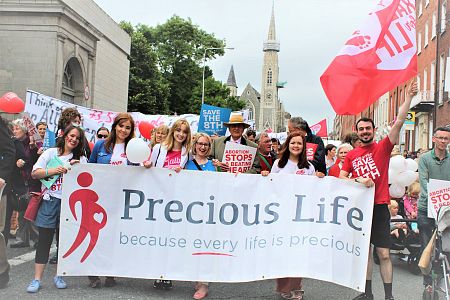PRESS RELEASE: Northern Ireland's pro-life laws come under renewed attack from an extreme and cruel abortion proposal
Precious Life's Bernadette Smyth has said that a new report released today by the Department of Health advocating abortion for sick babies is a "renewed attack on our pro-life laws. The report is ultimately a rehash of David Ford, former Justice Minister’s failed consultation in 2015 to legalise abortion in cases of life limiting disability, has been labelled by Northern Ireland's leading pro-life group Precious Life as “cruel, extreme and shocking.”
The 58-page report was commissioned in 2016 by the then Justice and Health Ministers and produced by a working group consisting of Civil Servants. Mrs Smyth said that, "the report merely presents recommendations, but has no real authority and is in absolutely no way binding on Northern Ireland."
Mrs Smyth pointed out that the extreme proposals repeatedly employ the term “fatal foetal abnormality” which she says is blatantly wrong and dishonest, and is under no means a medical term. “Abortion campaigners have been asked again and again to stop using this term, which is not and never has been medically recognised. This term should not be employed in the report as not only is it incredibly misleading, but it is not medically sound.” She continued, “The language used is appalling. Children with a poor prenatal diagnosis are not ‘fatal foetal abnormalities’ – this choice of wording is dehumanising, insensitive, and quite frankly, offensive. Every child is unique in his or her own right and does not deserve to be referred to in these terms."
"The cruelty and depravity of the report is thinly veiled, and it recommends a change in abortion law for sick babies up to birth," Mrs Smyth said. "Women and babies in Northern Ireland do not need abortion. What women really need is access to holistic, life-affirming and compassionate healthcare that cares for both lives when faced with a difficult prenatal diagnosis. This report makes absolutely no mention of the need for improved and more comprehensive perinatal hospice care, which should be the priority here," Mrs Smyth concluded.


